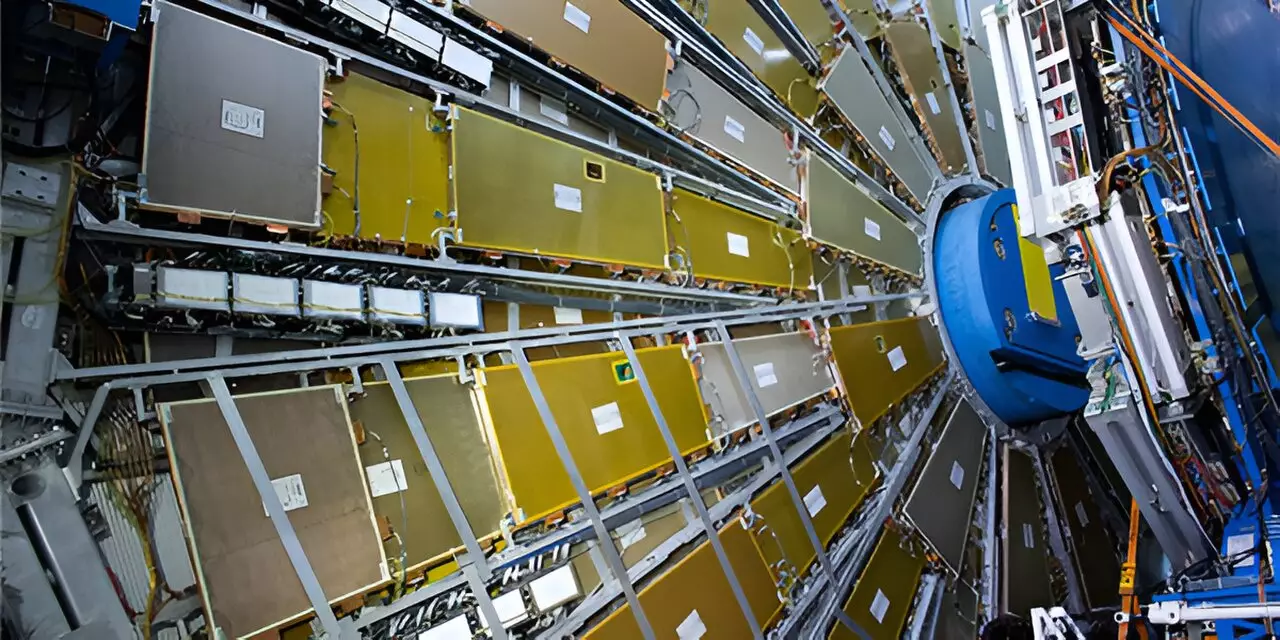In a groundbreaking study conducted by Professors Andreas Crivellin and Bruce Mellado, deviations in the way particles interact have been documented, pointing towards the existence of new bosons. These anomalies were observed in the decay of multi-lepton particles at the Large Hadron Collider (LHC), shedding light on fundamental aspects of particle physics.
Particle physicists study the makeup of fundamental particles such as protons, neutrons, and leptons to unravel the mysteries of the universe. Leptons, which include electrons, are elementary particles that play a crucial role in the formation of composite particles like atoms. By studying the decay of leptons, researchers gain insights into the structure of matter and the underlying forces in nature.
The discovery of the Higgs boson at the LHC in 2012 was a monumental achievement in particle physics. Predicted in 1964, the Higgs boson’s confirmation revolutionized our understanding of mass acquisition in nature and paved the way for further groundbreaking discoveries. The participation of South African scientists in this milestone event was significant in the realm of physics.
While the Standard Model of particle physics serves as the foundation of our current knowledge, it falls short in explaining several phenomena observed in nature. Deviations from the Standard Model, such as the anomalies identified by Crivellin and Mellado, indicate potential new bosons that could reshape our understanding of the universe.
Anomalies in particle interactions signify deviations from the expected behavior, hinting at underlying mechanisms yet to be uncovered. The presence of new bosons could elucidate the shortcomings of the Standard Model and lead to the exploration of new forces in nature. These anomalies act as precursors to major discoveries, as observed in the case of the Higgs boson.
The research that led to the discovery of multi-lepton anomalies was conducted through collaborative efforts at the International Workshop Discovery Physics at the LHC. Professors Alan Cornell and Dr. Mukesh Kumar played pivotal roles in the theoretical groundwork that culminated in the publication of these findings. The dedication of Crivellin and Mellado’s work to the late Professor Daniel Adams highlights the importance of mentorship and advocacy in advancing particle physics research.
The quest for new bosons and deviations in particle interactions represents a pivotal moment in the field of particle physics. The observations made by Crivellin and Mellado shed light on uncharted territories within the realm of fundamental particles, paving the way for future discoveries that could reshape our understanding of the universe.


Leave a Reply